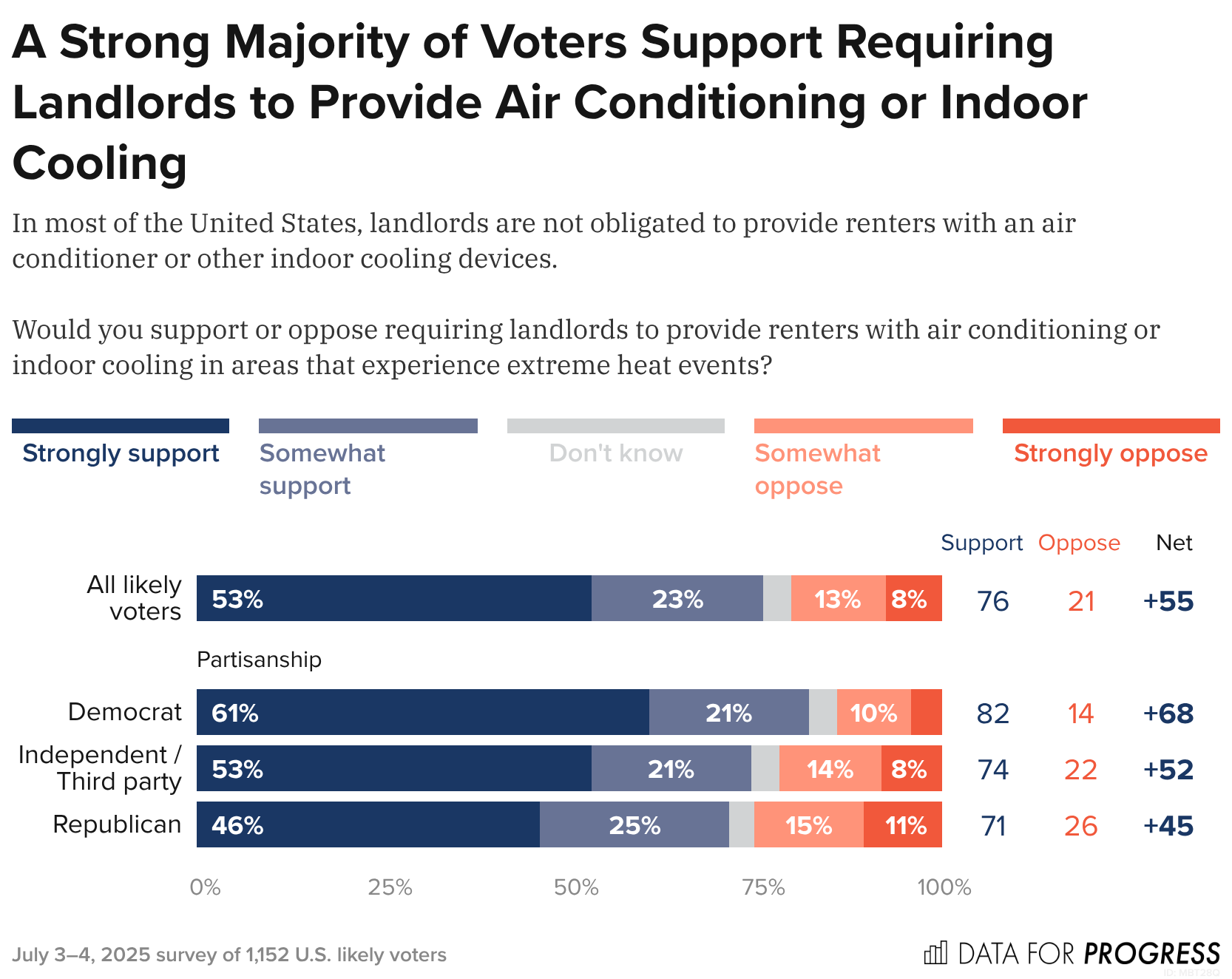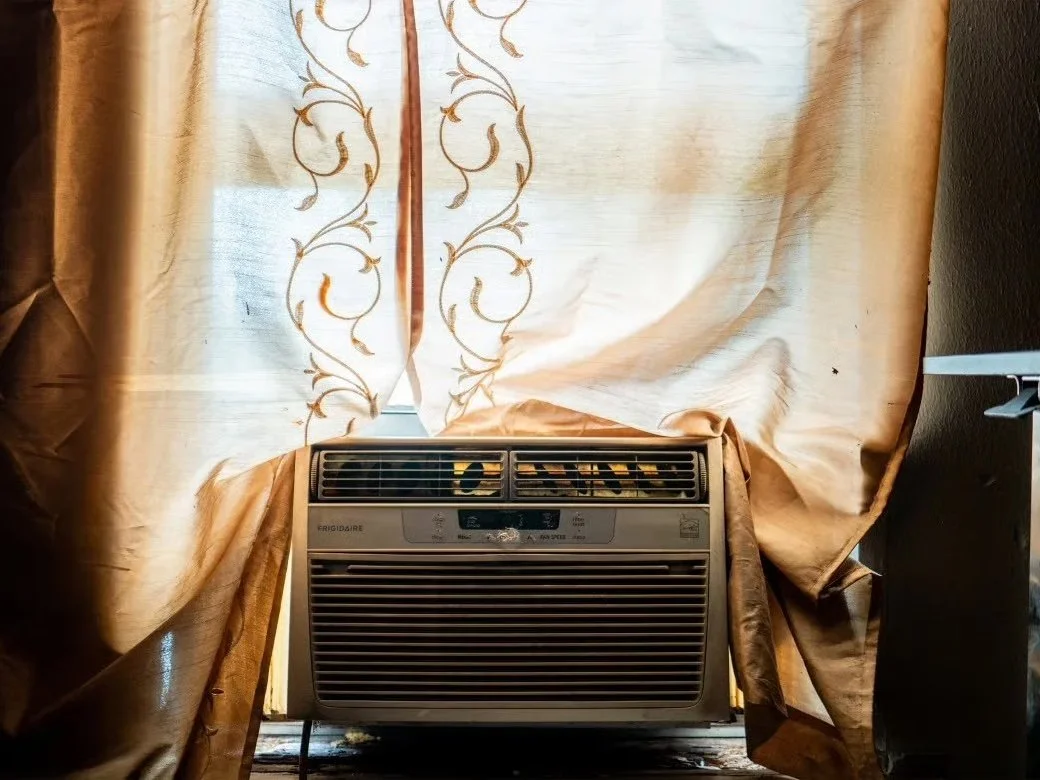🏡💚 Heat is killing summer
It’s officially summer. That means swimming, barbeques, movies in the park, travel, and ice cream. And while those and many other summer activities are widely beloved, a recent YouGov poll found that only 21% of people rank summer as their favorite season. That has changed rather dramatically just over the past 10 years — a poll in 2020 found 29% of people said summer was their favorite, and a poll in 2013 had 33% of people ranking summer #1. We all know by now that polls should be taken with a big grain of salt, and a survey about favorite season feels especially dubious. But the overall downward trend is pretty clear, and it’s hard to not attribute that to climate change.
We are now all too familiar with the increasingly normalized heat waves and extreme heat events that have become a deadly part of our summer experience. The past few days have seen both Northern California and inland parts of Southern California experiencing triple digit temperatures. That follows a heat wave that hit most of the rest of the country a few weeks ago which shattered temperature records in hundreds of locations in the Midwest and East Coast.
Record-breaking heat happens with such regularity that it’s now barely news-worthy. But this kind of heat is much more than just an interesting factoid; it’s also the deadliest natural disaster in the US and many places around the world. The recent June heatwave in Europe was estimated to kill 2,300 people across 12 major cities, and a recent analysis found that climate breakdown was responsible for tripling the death count.
That’s the backdrop for a new report this week authored by Chelsea Kirk at SAJE called A Renters’ Right to Cooling: Addressing Extreme Heat in Rental Housing. While the report focuses on cooling, it begins with two questions I agree should be central in our minds and in our climate politics: What do we owe each other in the face of climate change? And whose comfort, health, and safety count when designing policies for the greater good?
As we know, renters often have very little control over the condition of their homes. And as a result, the voices, preferences, and needs of renters are often disregarded. This report reverses that, centering tenants and document their perspectives on extreme heat and indoor cooling gathered from focus groups conducted in Los Angeles.
The findings are clear: “renters want air conditioning, need it to stay safe, and believe it should be treated as a right—not a luxury.”
Individual testimonies reveal the array of challenges that tenants face, including the insufficiency of solutions like portable units and the unaffordable cost of cooling. Some tenants also shared how they were actively barred from installing A/C units, with one landlord barring a renter from having a unit sticking out the window because “it looks bad.”
Currently, California law protects renters in the winter by requiring all rental residential dwelling units to include functioning heating equipment that can keep the indoor temperature at a minimum of 70 degrees. But there’s no similar requirement that gives renters the rent to cooling.
Advocates have been trying to change that for the past several years. In 2022 lawmakers failed to advance legislation to establish maximum indoor temperature standards for residential units. Instead, they included a section in the budget requiring the state’s Department on Housing and Community Development (HCD) to study and make policy recommendations to the Legislature to ensure that all residential dwelling units can maintain a recommended maximum safe indoor air temperature. But many found the recommendations of that study lacking. While the study proposed a maximum indoor air temperature of 82 degrees, they only recommended it for newly constructed units.
As asked in an LA Times op-ed: “Is this really the best California officials can do?”
While there are undoubtedly challenges to implementing mandatory cooling, this is not just about providing a luxury amenity to everyone — it’s literally a life or death policy decision.
And it’s widely popular. A poll released yesterday by Data For Progress found that 76% of all respondents (including 71% of Republicans) support requiring landlords to provide air conditioning or indoor cooling to renters.
The right to cooling is an active and ongoing campaign. In 2024, Los Angeles County proposed capping indoor air temperatures at 82°F in rental housing in unincorporated areas. While this is more in line with what’s needed, the policy doesn’t prescribe specific cooling technologies, which may allow landlords to opt for cheaper and less efficient solutions.
This year, an amended state bill would create the right to cooling as established state policy. This does not go as far to actually mandate cooling in rental housing, but it takes significant steps to ensure all state agencies incorporate the right to cooling into all of their policies, programs, and grants. The bill, SB 655, is an important step to making safety and cooling a reality for everyone in the state, and it deserves our support. The California Green New Deal Coalition recently voted to endorse the bill, and other organizations can still sign on in support.
We are continue to witness the results of climate breakdown, from the tragic floods in Texas to the heat waves in Europe, and very likely including the impending fire season that experts are warning is almost guaranteed to be especially devastating. Across all of these cascading crises and the issues we focus on, I again come back to the question: what do we owe each other in the face of climate change?
A/C units usually aren’t enough, but better than nothing, and more than many get. Source: CapRadio
WHAT WE’RE READING
A Renters’ Right to Cooling Addressing Extreme Heat in Rental Housing (SAJE) — read the report!
From Seattle to Atlanta, new social housing programs seek to make homes permanently affordable for a range of incomes (The Conversation) — really good summary of the social housing efforts happening across the country
Vienna has been declared a renters’ utopia – here’s why (The Guardian)
Feel free to reply any time! I always enjoy hearing from people and getting any feedback/questions/additional thoughts.
We send these out on a somewhat weekly basis. If you don’t want to get these newsletters, feel free to unsubscribe below. If you know someone that would be interested, send me their email, or you can forward this along to them and they can use this link to subscribe.


